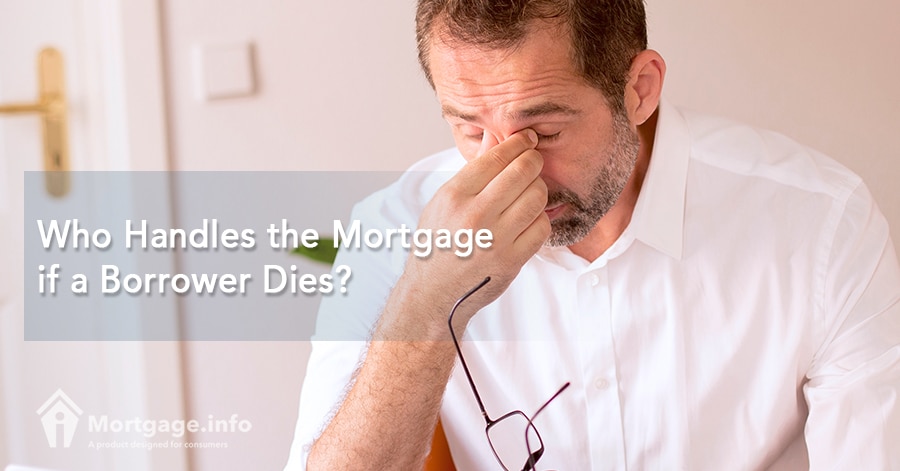When you take out a mortgage, you have to plan for the future. This includes the unexpected. While no one likes to think about their own death, it’s important to plan. Your house loan does not just go away because you are no longer with us. It becomes the responsibility of those you left behind. Before you leave them in despair, learn the steps to take to properly care for your home loan.
Looking for Current Mortgage Interest Rates? Click Here.
Is There a Co-Borrower?
The first thing to determine is if there is a co-borrower on the mortgage. If there is, that person becomes liable for the mortgage. They don’t have to pay the loan in full, by any means. But, they do have to take over the payments, making them in a timely manner. If they don’t make the payments, the bank can mark it against them on the credit report and/or take legal action if it goes on too long.
What Happens if There Isn’t a Co-Borrower?
If there isn’t a co-borrower on the loan, the mortgage note states that the lender has the right to immediate repayment of the loan. This means the deceased person’s estate should pay off the mortgage before making any other payments.
What if the Borrower Wills the Property?
The Dodd-Frank Act offers some protection to those who inherit a home upon a person’s passing if it’s in a will and testament. This rule allows an heir to take over the mortgage after a borrower’s passing. The act allows the new borrower to be added to the mortgage without any negative consequences or enabling the due-on-sale clause.
Even better news is that the person inheriting the property does not have to worry about the Ability to Repay Rule. In other words, the lender does not have to verify beyond a reasonable doubt that the person inheriting the loan can afford it. If the Ability to Repay Rule didn’t exist, it would be harder to inherit a property and/or loan because some people would not qualify.
Click to See the Latest Mortgage Rates.
How Mortgage Insurance May Help
Another option to help your successors afford your home upon your death is mortgage insurance. This insurance is similar to life insurance, except it’s only to pay your mortgage. If you die, the mortgage insurance kicks in and would pay the lender holding the mortgage off in full. This would leave your successors with your home and no debt.
Keep in mind, this insurance only covers the outstanding mortgage balance – it does not give the difference of the policy’s value and the outstanding balance to your successors.
The most important thing to do when planning for life after your death is to create a will. This lets everyone, including the state, know what you want to do with your property. If you don’t have a will, your home could end up with the state and could even get lost to foreclosure if enough time passes and payments are not made.
Looking forward to what would happen to your home upon your death is very important. Talk to your loved ones about what they can handle and how they would like to proceed. If you want them on the mortgage, you’ll have to name them in the will. This is the only way your mortgage company will talk to them regarding the mortgage upon your passing in the first place. The combination of a properly executed will and mortgage insurance will provide your loved ones with the best outcome.

